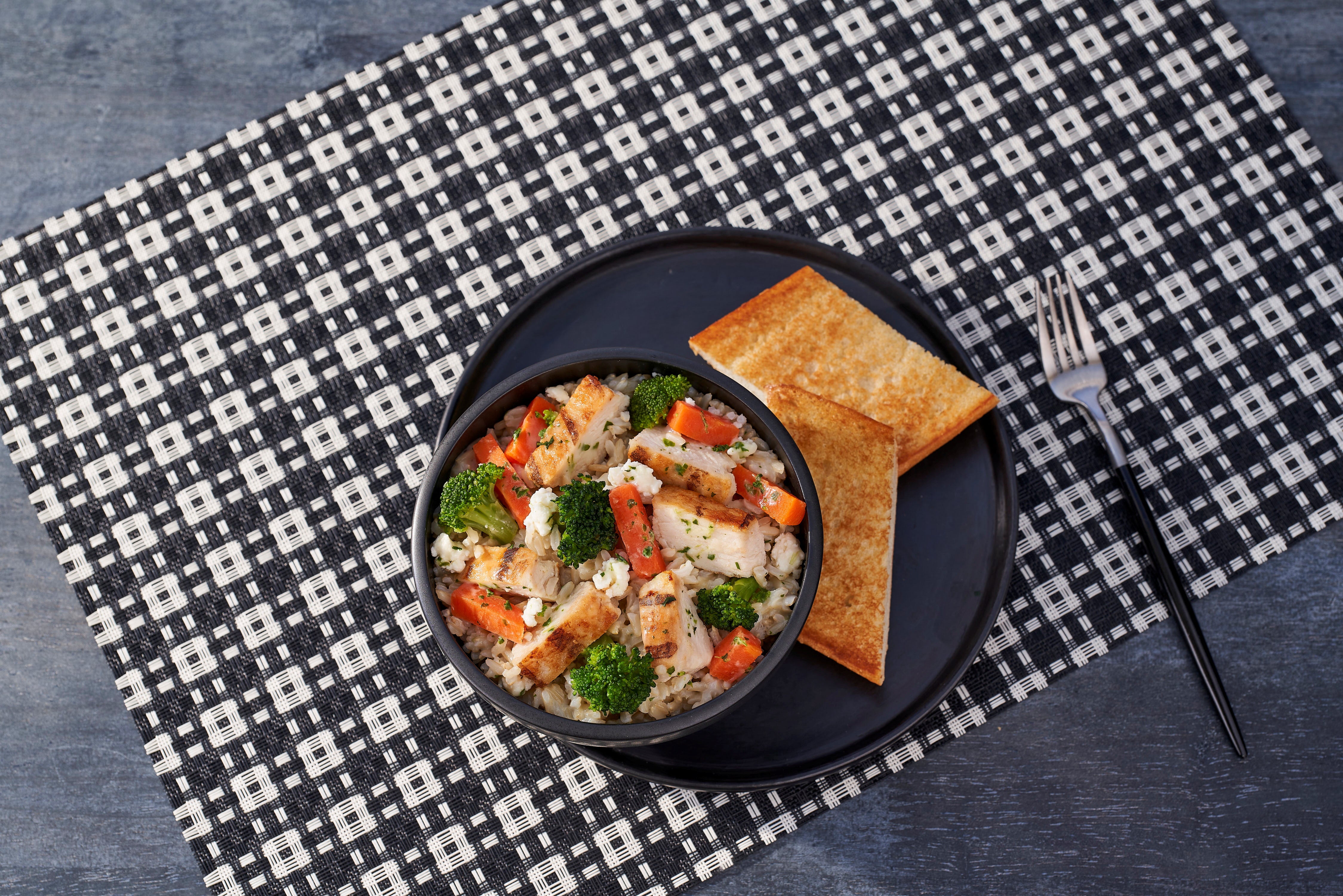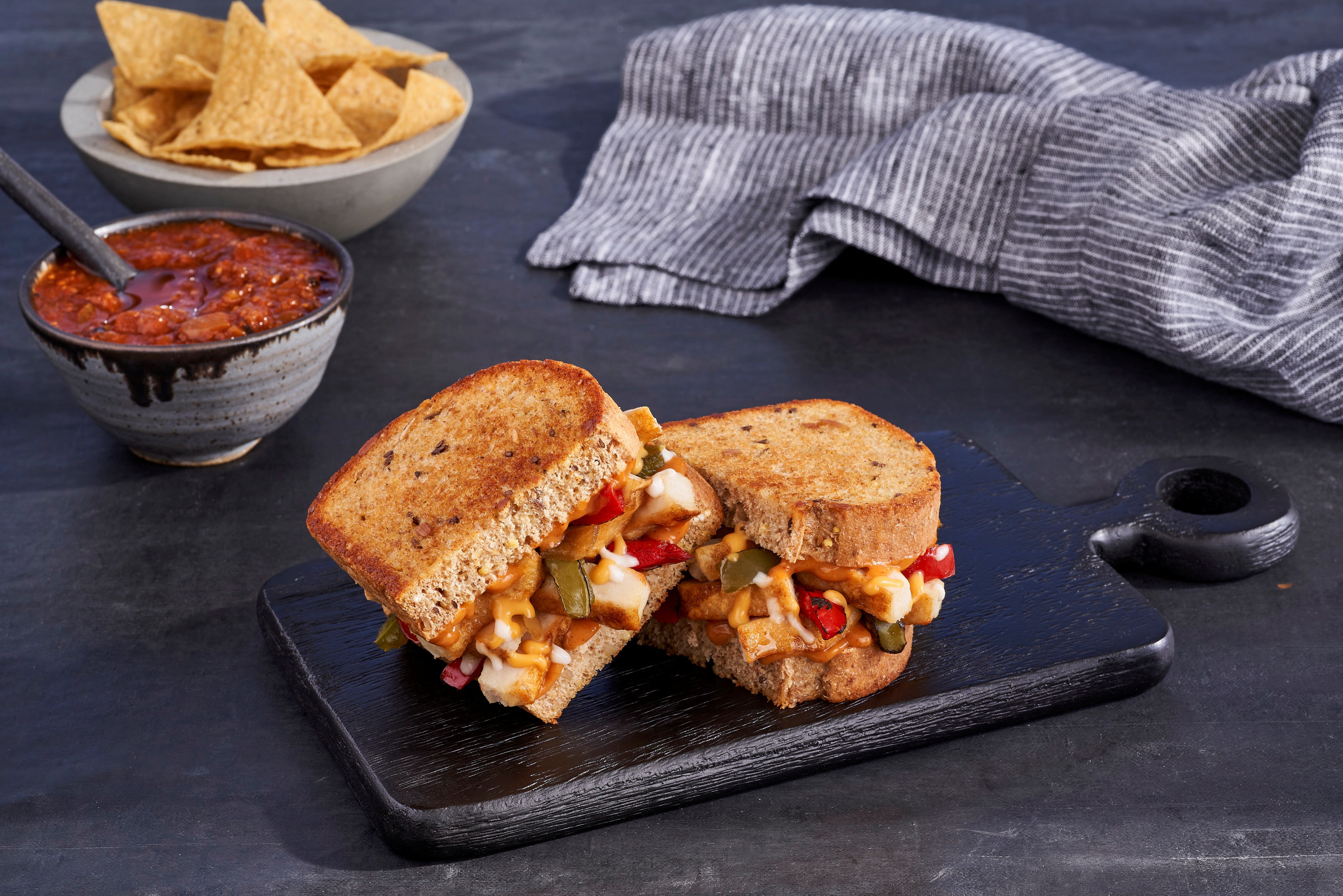Celebrity chef rails against frozen meals for Ozempic and Wegovy users: ‘Messed up as it gets’
The irony of processed food companies coming out with frozen meals for Ozempic and Wegovy users isn’t lost on Chef Andrew Zimmern

Your support helps us to tell the story
From reproductive rights to climate change to Big Tech, The Independent is on the ground when the story is developing. Whether it's investigating the financials of Elon Musk's pro-Trump PAC or producing our latest documentary, 'The A Word', which shines a light on the American women fighting for reproductive rights, we know how important it is to parse out the facts from the messaging.
At such a critical moment in US history, we need reporters on the ground. Your donation allows us to keep sending journalists to speak to both sides of the story.
The Independent is trusted by Americans across the entire political spectrum. And unlike many other quality news outlets, we choose not to lock Americans out of our reporting and analysis with paywalls. We believe quality journalism should be available to everyone, paid for by those who can afford it.
Your support makes all the difference.Celebrity chef Andrew Zimmern has railed against companies like Nestlé for making frozen meals for Ozempic and Wegovy users.
In an interview with TMZ, the Bizarre Foods: Delicious Destinations host slammed the food industry for creating frozen meals targeted to weight-loss drug users, since processed foods are partly to blame for the ongoing obesity epidemic in the US. Zimmern claimed it’s “messed up” that the food industry is trying to capitalize on the growing number of consumers taking GLP-1 drugs like Ozempic and Wegovy.
“There is something really messed up about people buying two, three hundred dollar injectables and jamming them in their stomach just to look better,” he said, criticizing the food industry for attempting to profit off of problems they created by popularizing processed foods.
“The irony is... some big processed food companies are coming out with foods that are meant to be taken with Ozempic,” he continued. “And I think the really sad truth is we’re gonna have more processed food that costs $5 or less to go with your very expensive injectable.”
He stressed that what we as a society really need to do is get back to the basics.

“I also think that linking a drug like Ozempic with a food line is about as messed up as it gets,” he added. “We need to get back to a place in time, as boring as it sounds, where we’re eating smarter, exercising, and taking care of our bodies. It really is that simple.”
According to a recent survey from the health policy research organization KFF, an estimated one in eight adults in the US have used a GLP-1 drug at one point, and nearly half of that number are currently undergoing the process. By 2035, research from Morgan Stanley indicates that the total number of US consumers on the medication could increase to a whopping 31.5 million, or nine percent of the total population.

This increase has had a ripple effect on consumer habits, according to Walmart US CEO John Furner, who told Bloomberg in October that data showed that customers who picked up GLP-1 prescriptions from their pharmacies were notably buying not only less food but items with fewer calories. With patients taking the medication eating less often - due to fewer cravings and a desire for more protein than sugary and fatty foods - investors are worried about what this means for the future of food and beverage companies and fast-food chains.
Processed food giant Nestlé recently announced plans to launch the new frozen-food brand, Vital Pursuit, aimed at the burgeoning weight-loss drug user demographic. With Vital Pursuit, Nestlé aims to help consumers along their ongoing health journey by providing them with the necessary nutrients. The new brand will join Nestlé’s other health-focused frozen food brand Lean Cuisine - founded in 1981 - but the difference is that the new brand is specifically geared towards weight-loss drug users who need to consume more protein amid muscle loss that often occurs with the drugs.

“For me, what we’ve done is actually given consumers a new tool that actually gives them confidence and success on this journey,” Nestlé CEO of North America Steve Presley explained to CNBC. “The consumer research shows that there are certain nutrients and certain macros that need to be delivered to actually help the consumers stay healthy along the journey of the GLP-1 treatment.”
The new brand will initially offer 12 items including frozen bowls with whole grains or protein-packed pasta as well as sandwich melts and pizzas that include one or more essential nutrients such as protein, calcium, or iron. They also plan on selling gluten-free items, too. Although the brand’s packaging will not include mentions of GLP-1 drugs, upcoming social media campaigns for the brand will directly tie the new products to the drugs.
Join our commenting forum
Join thought-provoking conversations, follow other Independent readers and see their replies
Comments